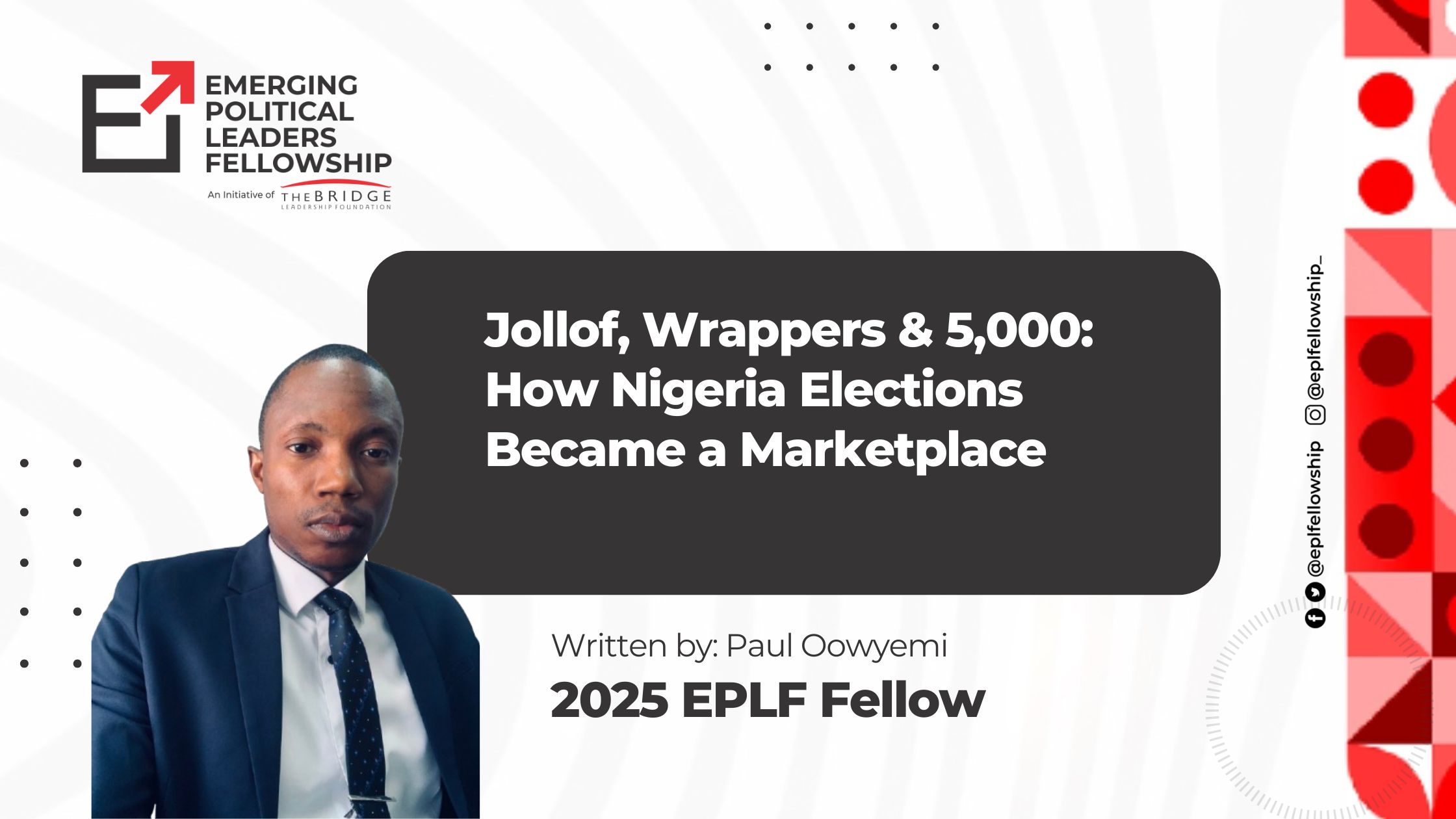An Article by Paul Owoyemi; 2025 EPLF Fellow
Elections and the electioneering process in Nigeria have always been characterized by all forms of undemocratic activities and violence. Notable instances are the Kano riot, the Eastern Regional crisis of 1953, the Action Group crisis of 1962, the Western Nigeria election crisis of 1965, and the annulled June 12, 1993 elections.
A critical analysis of these cases exposes a pattern of violence, thuggery, intimidation and various forms of vicious assaults and scheming in our politics. As time went on, the pattern of elections began to change, especially as democracy returned in 1999. Money, which has always played a prominent role in who wins an election, took a different dimension.
Though inducement of party chiefs and other critical stakeholders has always been one of the negative uses of money during elections, giving out money to electorates in exchange of votes which has equally been a usual occurrence has now taken on a dangerous dimension, in the name of vote commoditization.
Vote buying and selling is described as an act where parties, their agents and voters engage in trading activities as men would buy and sell pepper, but here the trading commodity in this instance are votes. Since it’s transactional and money is involved, the highest bidder usually gets the highest votes. The idea of vote buying and selling to a very large extent reduced the hitherto known menace of election violence.
What however many fail to understand is that another cancerous development is fast creeping into our political system. In that it became more ‘fashionable’ to ‘buy’ votes and induce voters than to ‘arrange’ thugs to disrupt elections or snatch the ballot boxes. Our politics moved from frying pan to an ‘emerging’ fire, one that is fast becoming an inferno.
Party agents, who already know registered voters within their wards/ units, go to them and promise them certain amounts of money in exchange for votes. The amount is usually dependent on the neighborhood; that is, the social class in which the electorates belong, and also, what is at stake for the contestants. In fact, in some communities, mere sharing of material things, like clothing, wrappers, cooked food, like jollof rice on the election days, with some cash, say 5000 naira is enough to buy a voter over. How pathetic!
This development has badly damaged our system to the point that someone with little idea about governance, a man who is not in the least prepared for an elective position can wake up one day and decide to run for political office just because he has the ‘money’ to buy his way into power. Sadly, a man that buys his way into power will forever feel he does not owe the people any form of accountability. At least, he ‘paid in full’ for the votes, and a man can do whatever he likes with whatever he buys with his money. That is how far money has ruined our politics.
There are quite a number of reasons why vote buying is prevalent today. These can be seen both from the angle of the politicians and that of the electorates, since it takes two to tango. If there are no buyers, sellers will have nothing to offer, and vice versa. Past experiences, where office holders failed to fulfill campaign promises have made some voters loose trust in the electoral system. Thus, they see getting money or any other kind of inducement as their ‘only gain’ from the government. Greed, illiteracy, ignorance, poverty and negative outlook are some of other reasons people sell their votes. On the other hand, desperation, lack of ideology to run with, capitalizing on the ignorance of the people, and the fact that some politicians see politics as an investment, are some of the reasons people buy votes.
There are two levels of vote buying; the primary election level, also known as delegate level, and the general election level, which is that of the electorates. Strangely, just like common commodities, votes can also be bought on a wholesale or retail scale. When politicians and their agents deal with electorates on an individual basis, that is retail buying. Wholesale buying is when deals are made on a collective bargain. In some cases, votes can be paid for in advance or even on credit (rarely though).
Putting a stop to this problem might be a difficult one, considering all the approaches involved, but it is not an impossible task. Solution? Until Nigerians begin to see this menace as a threat to our collective existence, and serious consequences are attached to this crime, no clear change can be made.
Note: All of these are thoughts from our fellows

